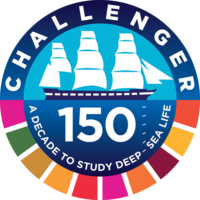Acknowledging the significant disparities in global capacity for deep-sea research and leveraging a participatory approach, the African Network of Deep-water Researchers proposes a series of short-, medium-, and long-term measures aimed at enhancing capacity for deep-water research in Africa.
While Africa’s deep marine biodiversity offers economic prospects it also supports crucial ecosystem services and sustainable development is dependent on knowledge of these systems. Building understanding of deep-water ecosystems is key, but there are substantial discrepancies in countries’ abilities to achieve this. Coinciding with the 2024 Ocean Decade Conference, the Challenger 150 African Network of Deep-water Researchers (ANDR) has released a report on “Practical Actions to Strengthen Capacity for Deep-water Research in Africa”. Through a series of online workshops, the ANDR brought together 98 individuals from 19 African nations to discuss challenges for deep-water research in Africa, identify solutions to overcome these and propose practical actions going forward.
Challenges
Challenges and barriers to entering deep-water research and advancing this field in Africa fit under several broad themes: societal barriers and disconnection, limited expertise, lack of infrastructure, insufficient financial resources, limited and closed collaborations and partnerships, and governance challenges. Examples of these come from participants’ lived experiences and include limited exposure to and awareness of the deep sea, lack of academic mentors, low retention of experts, inadequate government funding, and imbalanced collaborations.
Solutions and proposed actions
Practical actions that could be taken to strengthen capacity were informed by ideas for solutions to overcome the identified challenges. These focus on six themes:
- Ocean literacy efforts
- Human capacity development
- Incremental infrastructure development
- Fundraising
- Collaboration, networking and partnerships
- Improved governance, legal frameworks and policies.
Actions concentrate in the short-term (1-2 years) on strengthening the ANDR, promoting opportunities for training and research, inventorying experts and resources, identifying training and research priorities, and engaging partners. Medium-term actions (2-5 years) involve implementing training initiatives, seeking funding to support research projects, and technology transfer. In the longer-term (5-10+ years), extensive training, curriculum integration, regional research programmes, and policy influence will be key.
These actions align with the Ocean Decade Africa Roadmap priorities, supporting sustainable ocean management, observations, forecasting, and Early Career Researcher capacity development.
Prof Kerry Howell, co-lead of the Challenger 150 Programme, highlighted “This report is an important contribution to the UN Ocean Decade and the Challenger 150 Programme’s commitment to extend global capacity for deep-sea research. It is a critical first step in our stated outcome to increase the number of nations and stakeholders actively engaged in deep-sea research. The wider Challenger 150 community stand ready to support the ANDR in taking its next steps”.
Implementing the proposed actions would promote scientific progress and support marine conservation and resource management. It would also broaden the participation of African researchers in international processes affecting African communities and spaces. Going forward, the ANDR is actively seeking funding to undertake some of these proposed activities and welcomes collaborative engagement to support their implementation.
The development and production of this report was funded by the Scientific Committee on Oceanic Research, the UK Science and Innovation Network, the Global Challenges Research Fund One Ocean Hub Project, the University of Plymouth, the University of Aveiro and the South African National Biodiversity Institute.
Download and read the full report here: https://doi.org/10.24382/gxbv-sp22.
For more information, please contact Kirsty McQuaid (k.mcquaid@sanbi.org.za), Agnes Muthumbi (amuthumbi@uonbi.ac.ke) or Isa Elegbede (isaelegbede@gmail.com).
About the ANDR
The African Network of Deep-water Researchers (ANDR) was established under the UN Ocean Decade endorsed Challenger 150 Programme to build on Africa’s capacity for deep-water research, addressing global research disparities. Deep-water research is defined here as research conducted from a vessel deeper than 30m (excluding scuba diving), recognising that capacity in this realm is a precursor to working in the deep sea proper (>200m). Currently, the membership comprises >250 individuals from 27 African nations, representing more than 140 institutions.
Register your interest in joining here: bit.ly/ANDRregistration.
